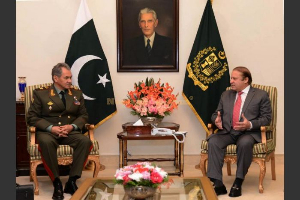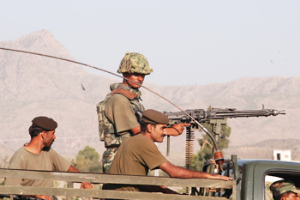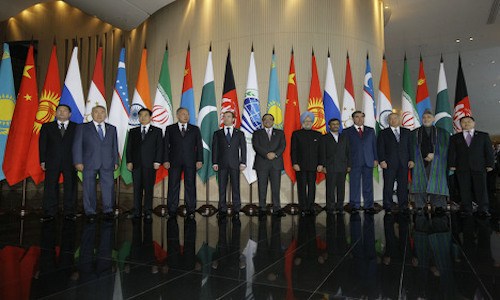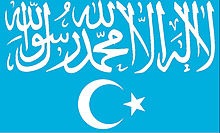Russia's Pakistan Volte-Face
By Naveed Ahmad (01/07/2015 issue of the CACI Analyst)
Pakistan has signed a military cooperation pact with Russia, “aimed at bringing peace and stability in the region.” Leading a 41-member high level delegation on November 20, 2014, Russia’s Defense Minister General Sergei Shoigu flew to Islamabad to sign the milestone pact, whose details were not made public. On the invitation of Russian President Vladimir Putin, Prime Minister Nawaz Sharif will soon visit Russia. The move follows Russia’s decision to lift its self-imposed arms embargo on Pakistan in June despite opposition from its longtime ally India.

The Beginning of Waziristan's Endgame
By Naveed Ahmad (11/11/2014 issue of the CACI Analyst)
Pakistan’s semi-autonomous region of North Waziristan has gone through an unprecedented transformation since June. The Pakistani military has launched an all-out assault on the Taliban Haqqani Group’s hideouts. The Taliban and its foreign collaborators have either escaped to Southern Afghanistan or remain holed up in their havens. The military’s most recent claims put militant fatalities to 910 and its own to 82 officers and soldiers. The fate of the long-awaited military campaign, timed with ISAF’s exit from Afghanistan, is crucial not only for the region but also for international stakeholders in the war-torn nation, who nevertheless have different definitions of “success.”

Shanghai Cooperation Organization Set to Expand
By John C.K. Daly (08/14/2014 issue of the CACI Analyst)
The Shanghai Cooperation Organization (SCO) currently consists of China, Kazakhstan, Kyrgyzstan, Russia, Tajikistan and Uzbekistan. At an August 1 meeting in the Tajik capital Dushanbe, foreign ministers from the six member states reached consensus on legal documents providing for expanding the SCO to include four current SCO observer states, India, Pakistan, Iran and Mongolia, passing two draft documents on expansion for approval at the SCO summit to be held in Dushanbe September 11-12. If passed, it will be the largest expansion of the SCO since its founding.

“CACI Analyst, February 05, 2014”
Turkistan Islamic Party Increases Its Media Profile
By Jacob Zenn (the 05/02/2014 issue of the CACI Analyst)
One of the main objectives of terrorist and other non-state militant groups, especially those which are significantly weaker than the states they oppose, is to win the narrative. The Turkistan Islamic Party (TIP), an Uighur-led and Pakistan-based militant group, in its own words seeks to “liberate East Turkistan [Xinjiang] from its Communist oppressors.” Although the TIP has carried out few attacks in China, it is a frequent contributor of anti-Chinese and anti-American propaganda to al-Qaeda online forums. The TIP’s praise of several high-profile attacks by Uyghurs in China in 2013 has placed the TIP in greater spotlight than ever before in its role as a mouthpiece for the Uighur militant cause.






